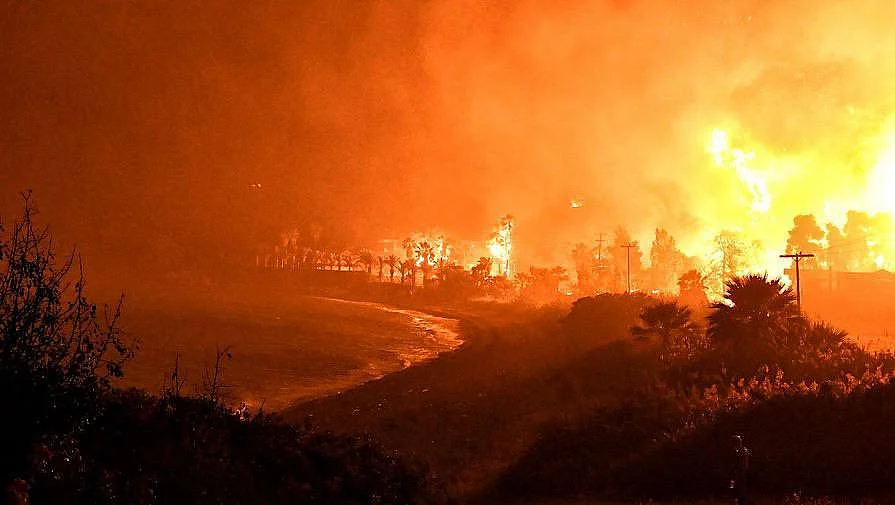Environment ministers from G20 nations were unable to reach a consensus on strategies to reduce emissions and implement vital measures to tackle the worldwide climate crisis, ahead of the UN climate change conference later this year. According to a report in Al Jazeera, the European Union's environment commissioner expressed his disapproval of the meeting's outcome in Chennai, India, where the world's major economies gathered. He criticized G20 countries, responsible for approximately 80 percent of global greenhouse emissions, for not fulfilling their commitments to combat climate change.
July 2023- the hottest month ever
"We were urged to make bold decisions, demonstrate courage, commitment, and leadership, but as a collective, we fell short of achieving those goals," stated Virginijus Sinkevicius, speaking a day after UN chief Antonio Guterres declared July as the hottest month on record worldwide.
A scorching heatwave has been sweeping across the northern hemisphere, resulting in record-breaking high temperatures and devastating wildfires in countries like Greece, Italy, and Algeria. Sinkevicius also expressed concern that certain delegations attempted to retract their previous climate pledges. "We must not allow ourselves to be guided solely by the lowest common denominator or narrow national interests. Allowing the slowest participants in the room to dictate the pace of change is unacceptable," he emphasized to his fellow ministers. Several crucial points, including a consensus on significantly increasing the use of renewable energy, remained unresolved, resulting in no significant progress.
India to issue outcome statement due to absence of unanimous agreement among member nations
The lack of agreement comes shortly after the G20, composed of 19 countries and the EU, failed to come to a consensus on reducing the usage of fossil fuels. As the current G20 presidency holder, Indian Environment Minister Bhupender Yadav announced that instead of a joint communique, India will issue an outcome statement due to the absence of unanimous agreement among member nations on all issues.
Peter Newman, a member of the UN's Intergovernmental Panel on Climate Change, emphasized that the impacts of global warming are now evident to everyone. He stated that climate change is not merely a scientific concept but a harsh reality that is causing suffering.He further expressed that the present moment is a "very critical period" for humanity, as there is a looming danger of irreversible consequences akin to "baking in an oven."
Even developed countries are unprepared to confront climate crisis
Catherine Gamper, a climate change adaptation specialist at the Organisation for Economic Co-operation and Development (OECD), pointed out that the response to the current climate emergency highlights the fact that even developed countries are not adequately prepared to confront the effects of a climate crisis.
"Regrettably, OECD countries are not adequately prepared; otherwise, we wouldn't witness the frantic efforts to extinguish fires and evacuate tourists from wildfire-prone areas," Gamper stated in her conversation with Al Jazeera.
She mentioned that although measures like heatwave plans were implemented across Europe after an estimated 65,000 climate-related deaths last year, they were reactive responses to emergencies rather than proactive prevention strategies.
Greece has been particularly hard-hit by heatwaves and wildfires this year. Thousands of people have been forced to evacuate from the islands of Rhodes and Corfu, and Prime Minister Kyriakos Mitsotakis declared that the nation was effectively "at war" with the wildfires.











